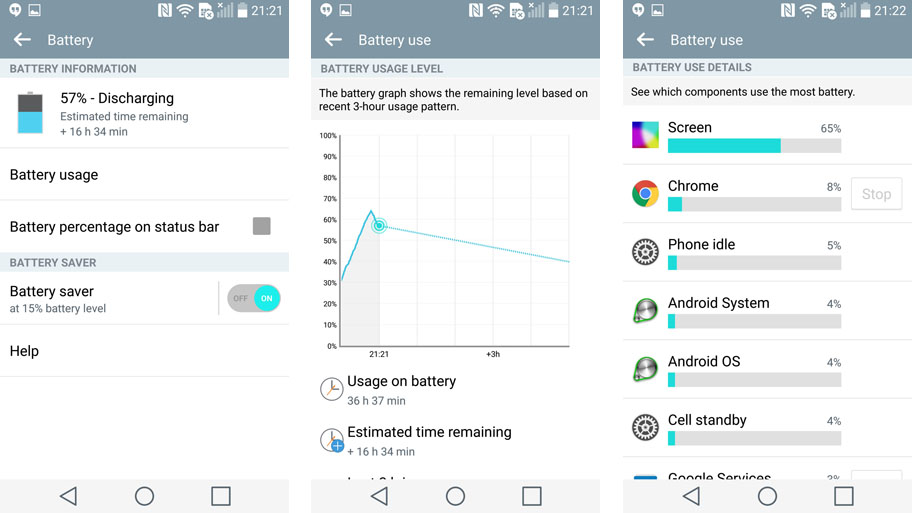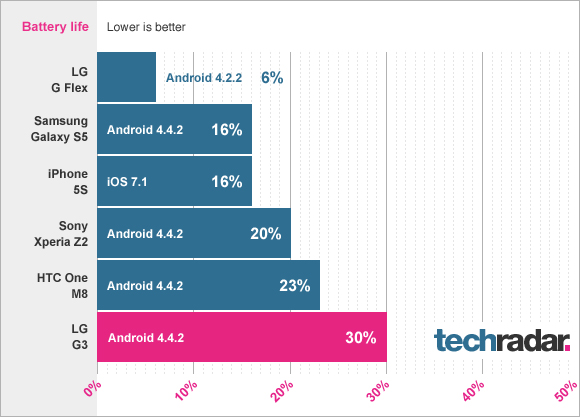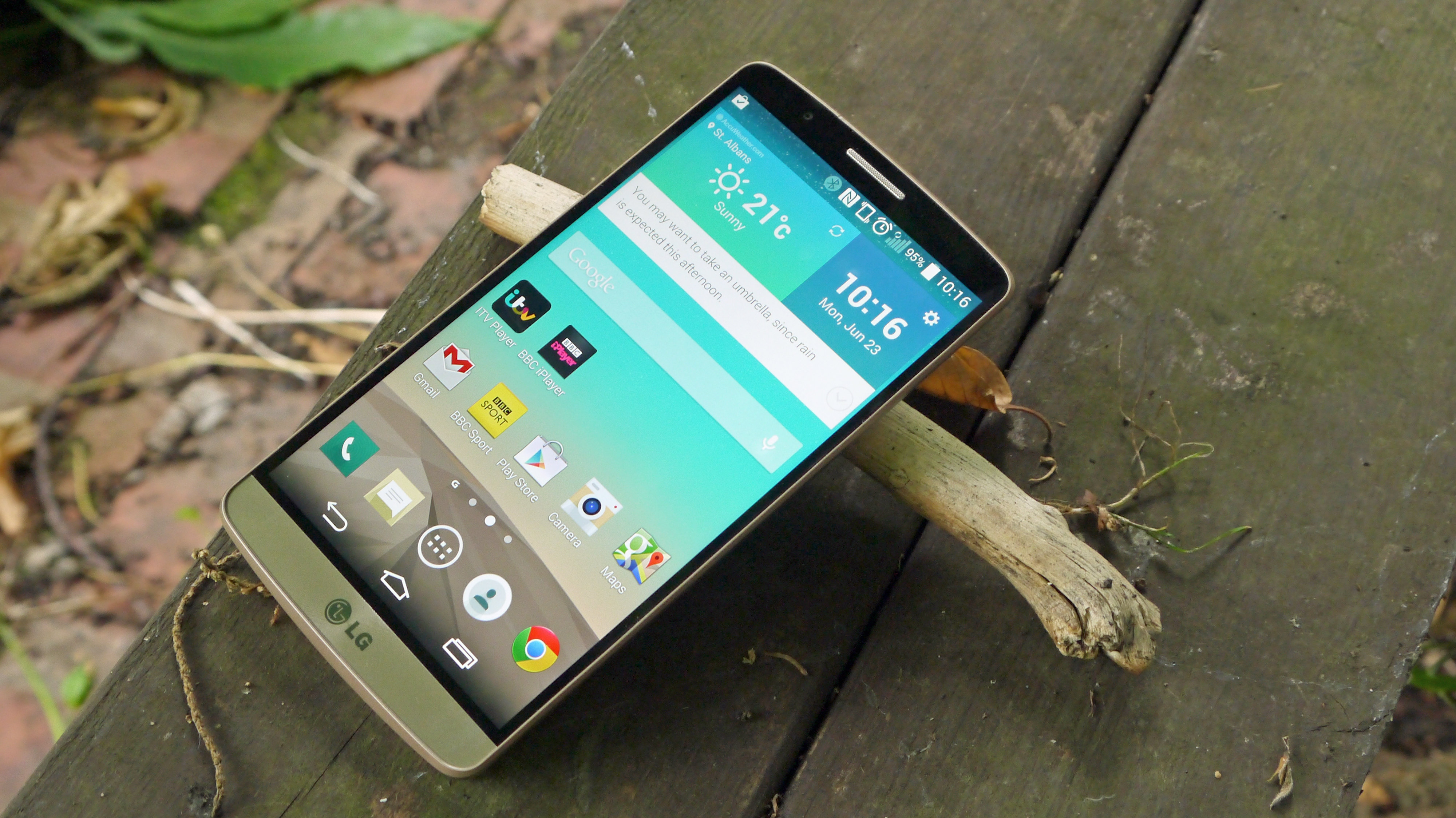Why you can trust TechRadar
I was keen to check out the battery life on the LG G3. With its 3,000mAh battery, the power pack on the G3 is certainly big enough, but it has to fire all those extra pixels, which could limit things. Then again, it's also got the ultra-efficient Snapdragon 801 CPU that even made an HTC phone last through the day without giving up the ghost.
Well, the battery life is great. It's not quite as impressive as other LG phones, but given the extra power that's needed as well as other brightness controls, it's a stellar effort and one that will easily see you through a day or so of medium-to-hard use.
LG has worked all its magic to get the power efficiency of the G3 to the maximum possible, and you won't see a lot of the stuff that's going on under the hood in day-to-day use.

It all depends on what you're doing. The frame rate of the display will slow down if not needed, as will the clock speed of the 2.5GHz quad-core CPU, and the LCD controls themselves also adapt to your usage, and it all works well together.
The result is that I never really noticed the phone getting overly warm either, which usually hints at strong power efficiency. It's also interesting to note that following the Android 5.0 Lollipop update, video doesn't seem to sap the G3's battery quite so much as it used to.
Running a 90 minute 720p video, with the screen brightness set to full, the LG G3 battery dropped to 82% on average. That's a massive improvement over our original Android 4.4.2-based test, which dropped dramatically to 70%.
One thing I should note, however, is the extreme variation I seemed to get in these video-based battery tests. On one run through I scored 79%, while the very next one scored 87%. It suggests that while Lollipop is generally more power efficient than before, it's perhaps not quite as consistent or stable as it should be.
Sign up for breaking news, reviews, opinion, top tech deals, and more.

It's interesting to note that LG doesn't seem to have the same Ultra/Extreme power saving mode as seen on the HTC One M9 and Samsung Galaxy S6 – I've not been convinced of their need to be a headline feature, but if you're in a pinch these modes can turn the phone down to the minimum power drain possible.
It's not needed, but such is the synergy between what Samsung and LG do with their flagship phones I'd have expected to see it there.
It's also great to see the LG G3 coming with wireless charging out of the box, although not all models will have this feature. It's frustrating that it's not a standard feature on more handsets, as it would help with the proliferation of the method of charging a phone.
LG says this wireless charging is based on the Qi standard, and while it seems to be a little confused over which charging pads it uses, it's ace to see it there from the start.
Overall, battery life is plenty good enough on the LG G3, and as something that most people look for in a new smartphone, this is a real recommendation.
There's a small, wistful, part of me that almost wishes that the QHD screen wasn't added into the G3 – which I appreciate borders on the hypocritical given it's something we've been looking forward to for a long while in a phone.
But given LG's ability to eke the most out of the battery, this could have been a record breaking phone, especially if the battery had been sealed in. The LG G2 had a battery that was morphed around the internal components, so if we could have feasibly had an even larger capacity on a phone that didn't draw as much power, meaning you genuinely wouldn't have to charge more than once every two days.
It's not fair to criticise a brand for pushing the boundaries of technology in everyday devices, but it perhaps hints that longer battery life would have been a better selling point than the first QHD display, especially now that it's not even the only phone with a QHD screen any more.

Jon is a freelance journalist who has been covering tech since the dawn of the smartphone era. Besides TechRadar, his words and pictures have appeared in The Telegraph, ShortList, Tech Advisor, Trusted Reviews, Expert Reviews, and more. He largely covers consumer technology, with a particular focus on smartphones and tablets. However, he's also been known to dabble in the worlds of entertainment and video games.
